By Emily Peotto
The sun filters through the open door of a small shipping container in Moss Park, a sprawling neighbourhood southeast of Toronto’s downtown core. It is mid-March in Toronto: a season often plagued by vicious weather, but today is warm and welcoming.
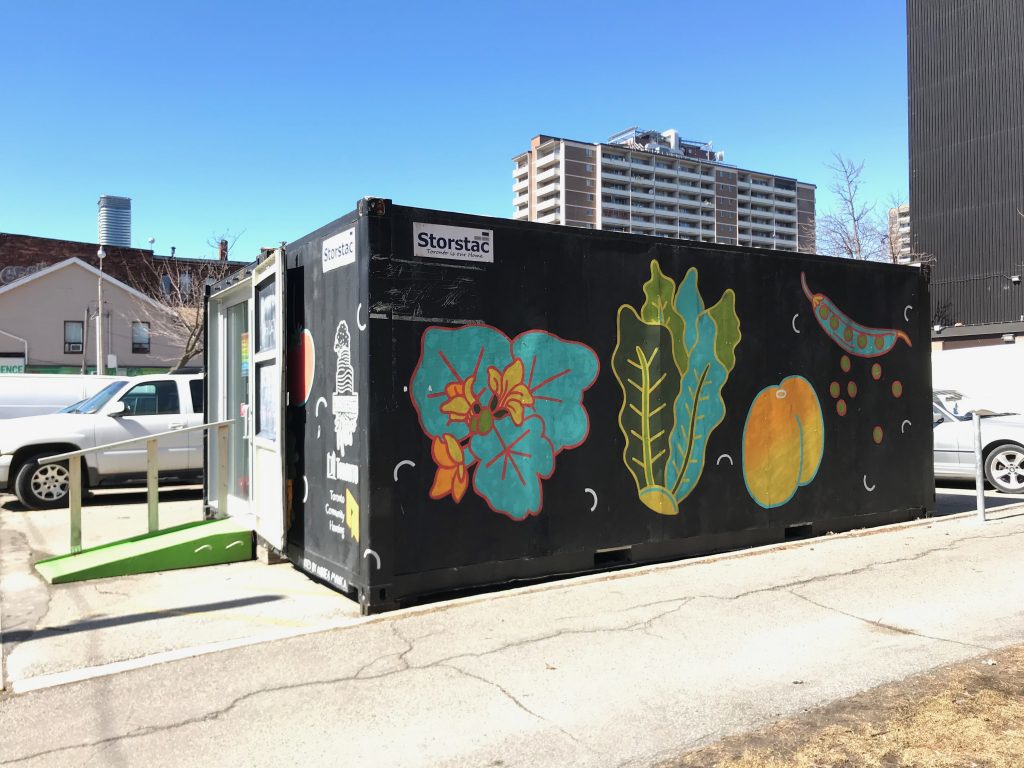
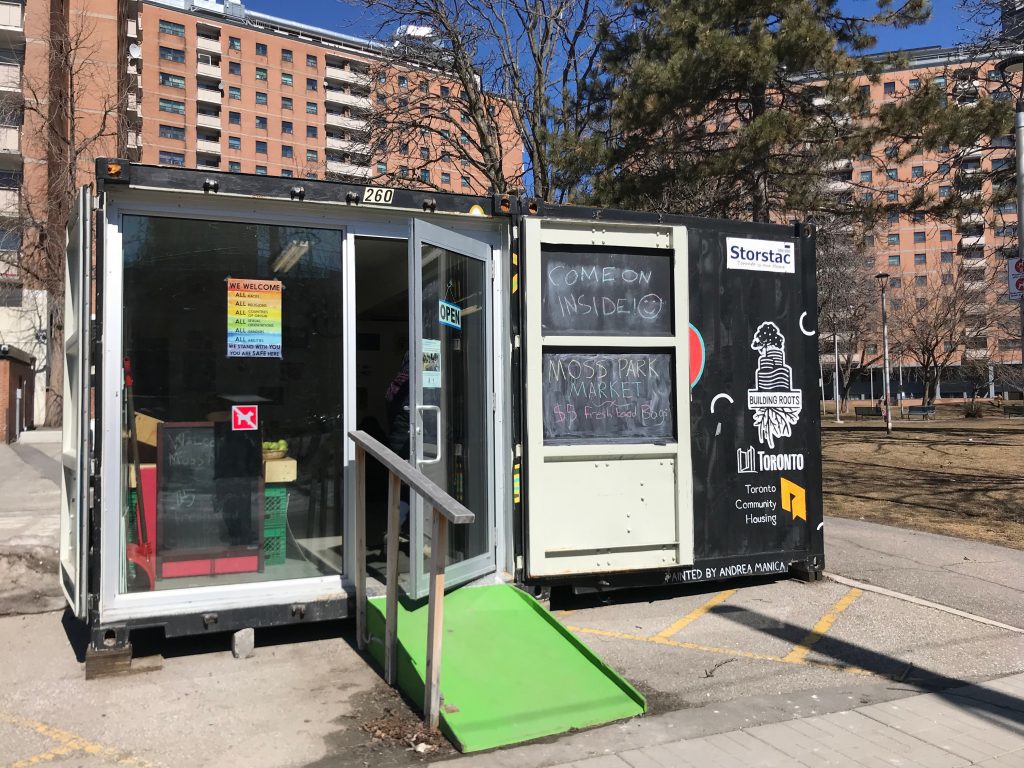
Kate Hamilton leans against a folding table at the front of the room, her grey hair pushed away from her forehead by a scarf, her body draped in a thick sweater. She holds up a green gardening pot to an audience of six. Today, Hamilton is holding a workshop on how to plant and grow peas. Almost every Saturday at three p.m., she shares her knowledge with a group of eager students. The tips of her fingers have turned brown with soil as she pushes five seeds deep into her pot. The students follow her lead, all creating their own pea plant.
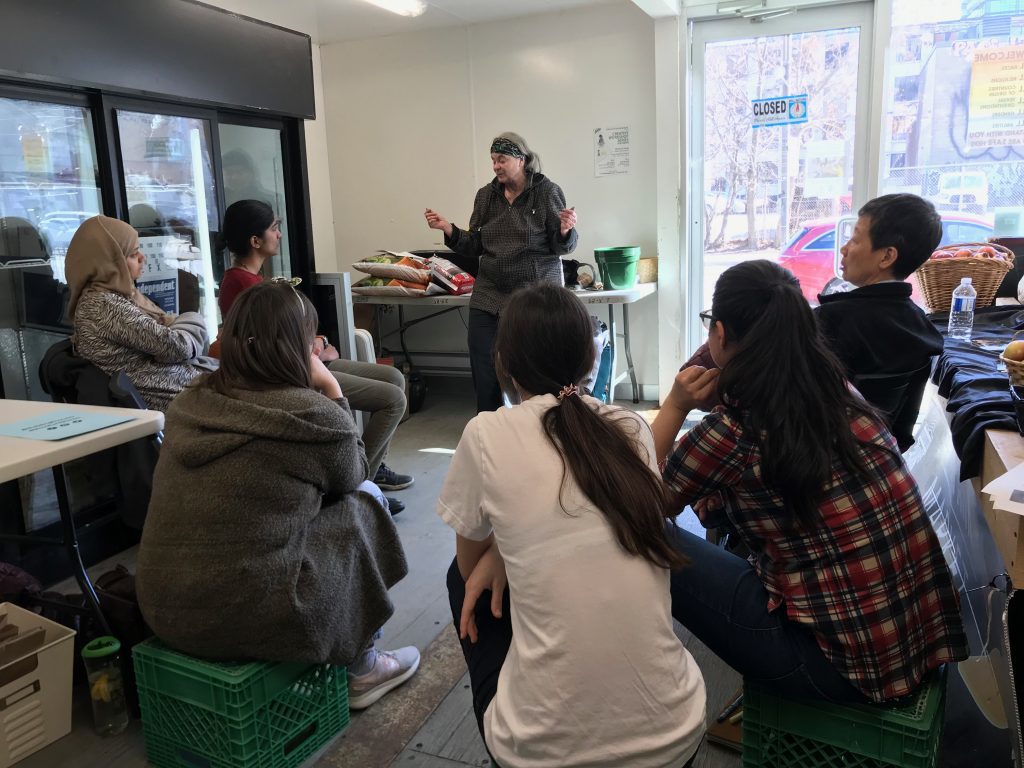
Darcy Higgins and Lisa Kates created the Moss Park Market almost three years ago, as a collaboration with Building Roots, in order to fill an overwhelming need: to bring food to a “foodless” neighbourhood.
For a long time, the FreshCo on Dundas and Parliament has stood lonely as the only large grocer in Moss Park. Grocery stores seem to be a rare commodity in this neighbourhood, resulting in residents having to schlep twenty minutes or more to get their items.
The market is held inside of two shipping containers, welded together to create a small room, parked on the lot of a Toronto community housing apartment building on the corner of Queen Street East and Seaton Street.
According to Statistics Canada, as of 2016, Moss Park has a growing population of 20,506 people, with 34.6 per cent of these people falling under the poverty line. While most homes here are Toronto Community Housing buildings, just under 40 per cent of houses in this neighbourhood are deemed “unaffordable” for a community where the median household income is roughly $13,000 less than the Toronto average.
From the open doors of the container, the skyline of Toronto is clearly discernible. Glass buildings reach up and out into the clouds, the sun bounces off of them, reflecting back. The divide between Moss Park and the downtown core is clear: the buildings here are still brick, and they are quickly becoming decrepit. Suffice to say, residents of this neighbourhood feel ignored, cast-off as less important.
In its beginning stages, the market only stocked a small number of fruits and vegetables: apples, bananas, onions, sometimes tomatoes. Now, as demand grows, the market remains open year-round on Saturdays, and focuses mostly on its five-dollar baskets.
In the summer, all of the produce is grown at a farm in Ashbridge Estate, roughly a ten-minute drive past the Don Valley Parkway, in Leslieville. Kates and Higgins’ partnership with Ashbridge Estate is what allows them to sell their food for “very low, low prices at the market all summer long,” Kates says, a crucial part of their mission.
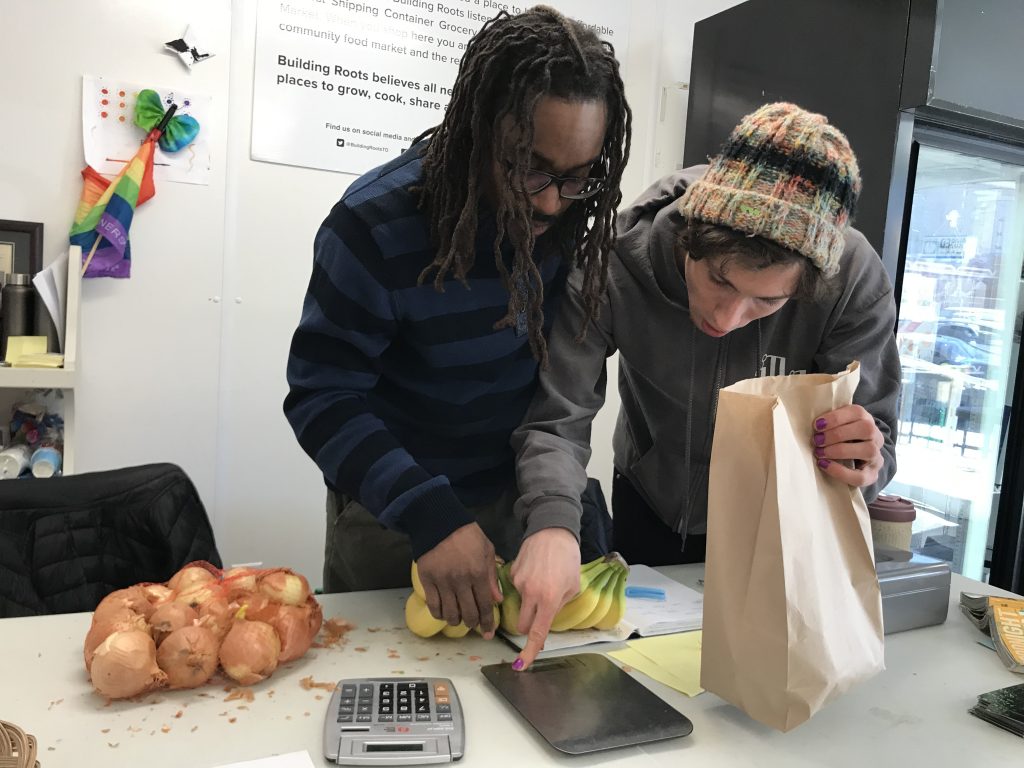
Dustin Stern, an unassuming sales clerk, sits in the opposite corner of Hamilton. Across from him is a wooden table filled with fresh produce: dark, leafy greens, carrots that poke out like fingers, shiny, red apples. Customers walk in and out at a leisurely pace, and most stop and talk to Stern as if they’re old friends.
“It really is about community here,” Stern says, handing a bag of onions to an elderly lady. “We want people to feel like they belong.”
Stern found the market through living in the area. When he first saw it, he described it as looking out of place. A black storage container, painted with colourful flowers, fruits, and vegetables (by Andrea Manica), there was “nothing else like it,” he says. Stern met Kates and Higgins roughly two years ago, and was hired as a sales clerk and event organizer almost immediately.
It is clear, from the rainbow coloured sign on the door that reads “we welcome all races, religions, countries of origin, sexual orientations, genders, abilities,” that the market has become a hub for inclusive, community building. Their active programming is one of the ways they maintain this.
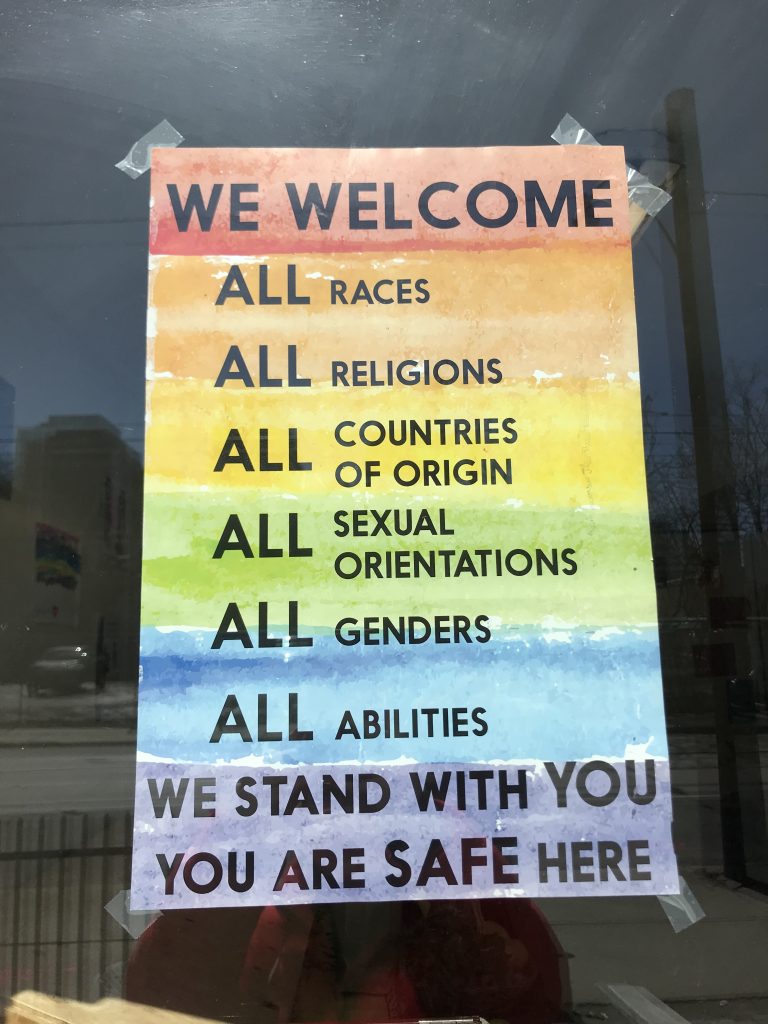
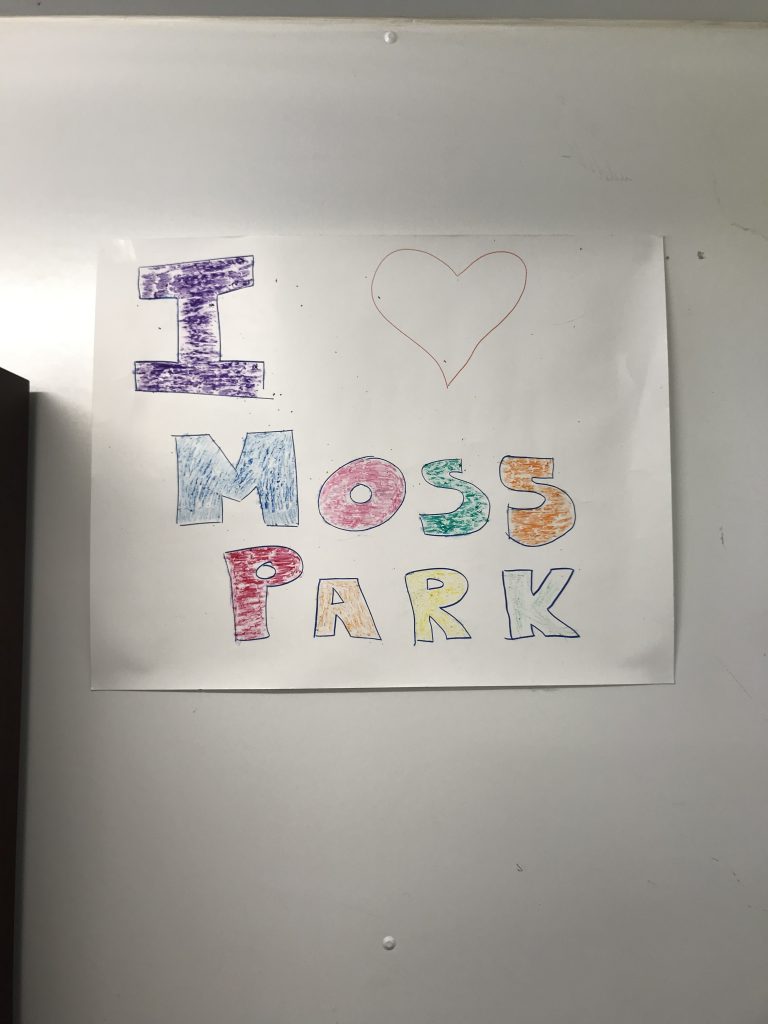
“I always want to share my knowledge with people,” Hamilton says, smiling as she looks over her students, “my favourite part is watching them interact with each other; they become friends so quickly.” Across the room, a young, blonde woman holds up her completed pot, pride painted on her face as her friend takes her picture.
In another corner, there is a tall, wooden shelf, filled with worn-down books. The sign on the top politely asks people to “take one book, and bring it or another book back, please.” The library was originally created for the children that live in the area, but has quickly expanded to include more mature books, like a well-read copy of Dan Brown’s The Da Vinci Code.
Along the walls are colourful drawings, which Stern proudly says are done during art programming for children. There are rainbows, butterflies, different, eccentric-coloured vegetables. One simply reads “I love Moss Park Market.”
At the end of the day, once all the customers have come and gone, Stern and other volunteers take the leftover produce to the nearby Toronto Overdose Prevention Society. This is just one of the ways in which the market continues to pay it forward to the community.
In the summer, the market holds an event titled “Karma Kitchen Picnic in the Park,” which is a pay-it-forward lunch for community members. The idea is that anyone can come, give a donation, and participate in a full-service lunch that is run in collaboration with neighbourhood partners. On Saturdays, live music plays from the porch of the container.
“The beauty of Moss Park Market and Building Roots is that there’s so much room for collaboration,” Stern says, pausing. “And even more for community.”
Watch: A day in the market
